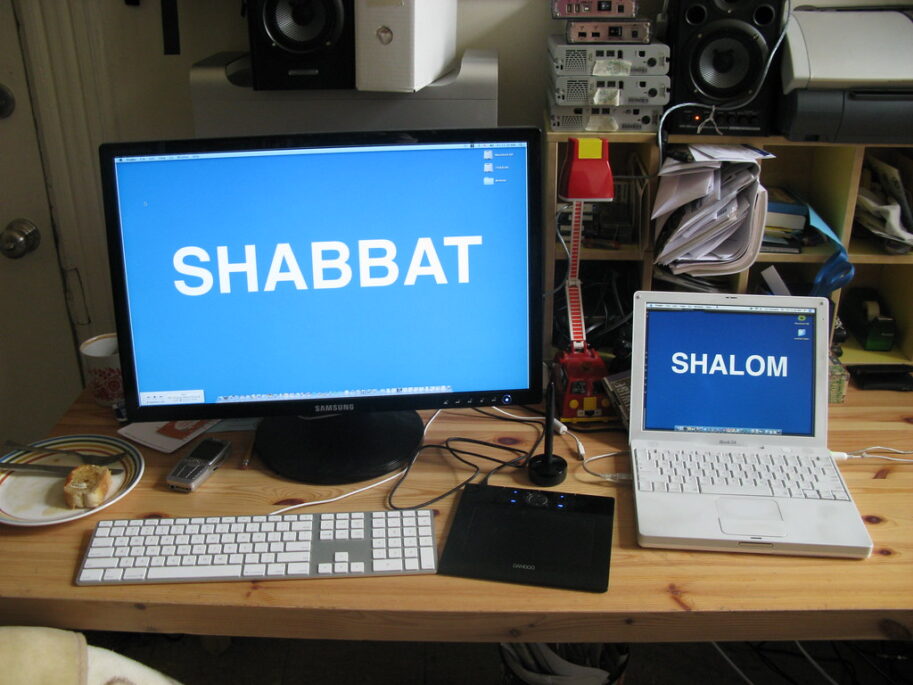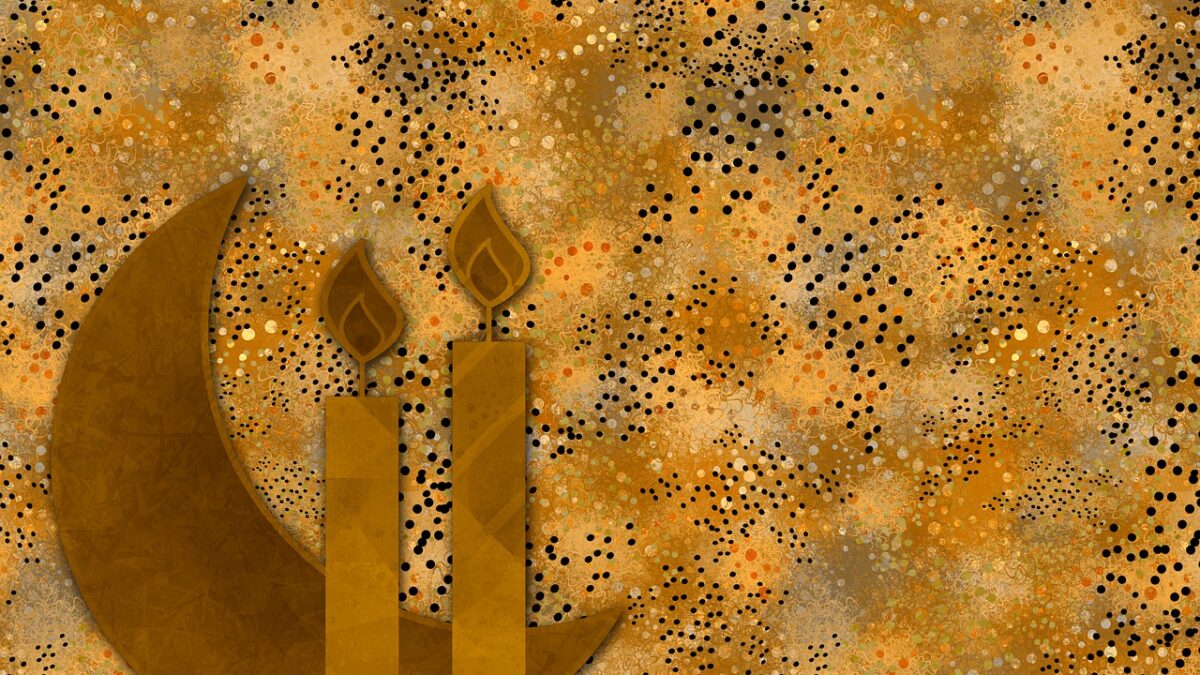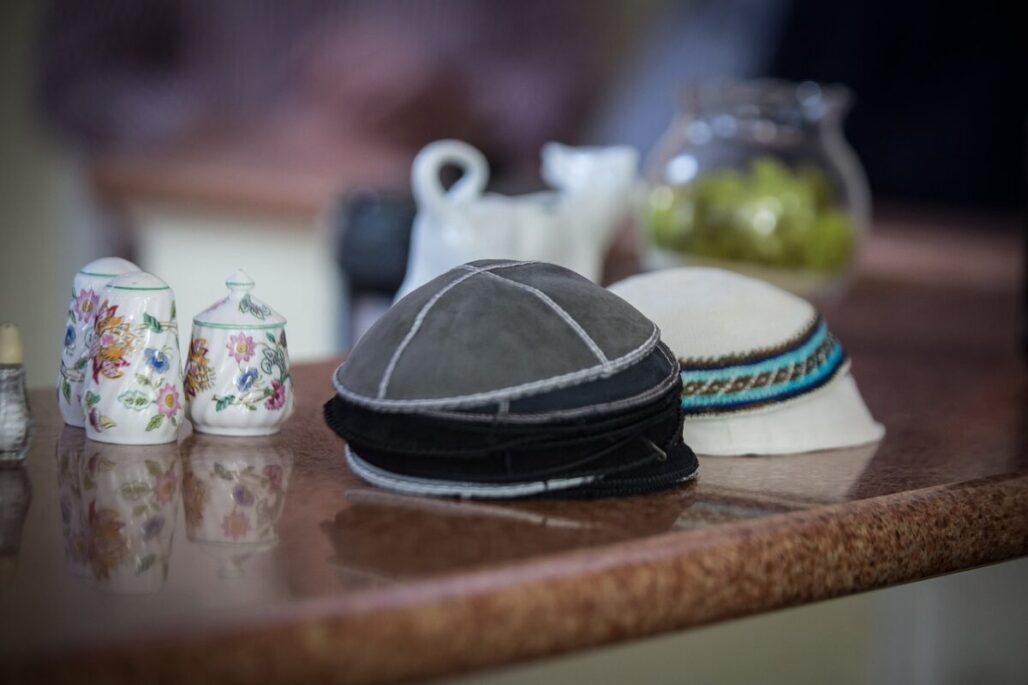The Sabbath is such a gift.
After so many disputes about whether Christians should or shouldn’t observe the Sabbath, let me just say: required or not, it is a blessing.
As many have said before me, it is not meant to be a burden but a delight.
In Hebrew, Sabbath is pronounced Shabbat. The Bible mentions it quite early on – already in the story of Creation. And actually, from our human perspective, Shabbat was the first thing we experienced!
Once God created man as the crown of the creation, He decided it was time for Shabbat, so He rested together with Adam and Eve.
It is one of the first things God blessed (Gen 2:3), and its purpose is to enjoy it with Him (Isa 58:13; Heb 4:9). We keep the Sabbath not to earn God’s love, which we know is impossible. But we do so to show our love to Him. Love is eternal, and the Bible says so is Shabbat (Matt 5:17-19) (Gen 2:2; Ex 31:12-17).
Shabbat customs
In the Hebrew calendar, a day runs from one sunset to the next, so the Sabbath begins already on Friday evening. This definition is rooted in the Biblical description of the Day of Atonement in Leviticus 23:32, where it says the holiday lasted “from evening to evening”.
In Israel, Friday afternoons become more quiet and serene with every passing hour. And right before sundown a horn is sounded in Jerusalem to announce the day of rest.
Jewish families have established wonderful traditions to enter into Shabbat.
They are kept to remember the Creator and delight in Him (Isaiah 58:13). Below you can find a simplified summary of Shabbat traditions, which you can implement at your own home.
Lighting the Shabbat Candles
The first ceremonious element of the night is lighting of the candles. It is done right before the sunset, so not necessarily at mealtime. In the traditional Shabbat observance, it is one of the few elements that is performed by a woman, including pronouncing the traditional blessing:
Blessed are you, Lord our God, King of the universe, who sanctified us with His commandments, and commanded us to kindle the sabbath candles.
However, believers would argue that in the Bible God never specifically commands to light candles on Shabbat. Thus, in many homes the last part of the prayer is changed, while also mentioning the light of Yeshua (Jesus), so the blessing goes as follows:
Blessed are you, Lord our God, King of the universe,
who sanctified us with His commandments,
commanded us to be a light to the nations,
and who gave us Yeshua, the Light of the world.
Shabbat Songs and Prayers
The Sabbath is set apart from other days of the week by involving no work, no rush, and no distractions. God established. this very first holy day not to restrict us, but to bless us. It is to our health and spiritual wellbeing.
That is why the Sabbath is considered to be a very joyous occasion. Jewish families fill their homes with songs on a Friday evening.
There are many beautiful Hebrew songs that traveled around the world, but two in particular are worth mentioning.
The hymn ‘Shalom Aleichem’ is possibly the most popular Shabbat song around the world. It invites the angels of the Lord to dwell with us at this holy time.
Another hymn that is commonly sang around the Shabbat table is Eshet Chail, which is Hebrew for “Woman of Valor”. Sang usually by the head of the household, it is a tribute to the virtuous woman described in the 31 chapter of Proverbs. The husband sings it over his wife.
We follow the song with blessings over the sons, to be like Efraim and Menashe. Blessings over the daughters are to become like Sara, Rebekah, Rachel and Lea. Often the father recites the Priestly Blessing over them, which is recorded in Numbers 6:24-26:
The Lord bless you and keep you, the Lord make his face to shine upon you and be gracious to you, the Lord lift up his countenance upon you and give you peace.
Shabbat Readings
As mentioned in the beginning, the Shabbat is a reminder of our – as mankind – very first day on earth which we spent with our God and Creator. For this reason, as Shabbat begins it is customary to open Scripture on the story of creation. Of course, we give the main focus to the day of Sabbath itself, so we read the following passage:
God saw all that he had made, and it was very good. And there was evening, and there was morning—the sixth day. Thus the heavens and the earth were completed in all their vast array. By the seventh day God had finished the work he had been doing; so on the seventh day he rested from all his work. Then God blessed the seventh day and made it holy, because on it he rested from all the work of creating that he had done. (Genesis 1:31-2:3)
Shabbat Blessings for Wine and Bread
At the dinner table, the head of the family recites two blessings over food. They are for the wine and for the bread (in that order). These two key elements remind the Jewish people of God’s salvation and provision for centuries.
The wine is a reminder of the blood of the lamb that saved them from Egypt. Meanwhile, the traditional two loaves of bread represent the double portion of manna that Israelites received before Shabbat in the dessert.
The head of the household lifts up a cup of wine and recites:
Blessed are You, Lord our God, King of the universe, who creates the fruit of the vine.
Customarily, everyone takes a sip of wine from the same cup. Secondly, the head of the household lifts the bread loaves and recites:
Blessed are You, Lord our God, King of the universe, who brings forth bread from the earth.
For believers in Yeshua, the wine represents the blood of the Lamb of God who died on the Cross for our Salvation. Similarly, the bread is a reminder that Yeshua is the Bread of Life. As such, these two elements can be the Communion that Yeshua established on the night that He was betrayed.
The cup and the bread are weekly reminders of Yeshua’s sacrifice and our redemption.
Shabbat Blessing after the Meal
This is probably a new concept for many. In Christian homes, it is common to pray before the meal, but not after. But that is not the only difference between Jewish and Christian homes.
In a Jewish home, you will never hear anyone bless the food – you bless God, to show gratitude for His provision.
The blessing after the meal is colloquially called ‘benching’, from the Yiddish term bentshen – to bless. It is rather long, in its traditional form, and consists of four parts. That is, to give thanks for the food, for the land of Israel, for Jerusalem, and for God’s goodness. The origin of this tradition is also biblical:
When you have eaten and are satisfied, praise the Lord your God for the good land he has given you. (Deut 8:10)
Oobserving Shabbat
We know that God gave the Sabbath to the people of Israel as a commandment. Additionally, thanks to prophet Isaiah, we know that the Lord honors foreigners who observe the Sabbath. In reward, He gives them a new name and promises them joy in His house of prayer (Isaiah 56:3-8). God delights in those who hold fast to His covenant and keep the Sabbath.
His Holy Word makes it very clear that these words apply to both Jews and Gentiles.
After a busy week of work or studies, we all long for a little break. We need to shift gears, take a deep breath, and clear our heads. And the Bible gives us the perfect recipe for how to do that.
Source: https://firm.org.il/learn/a-traditional-way-to-observe-the-sabbath/












